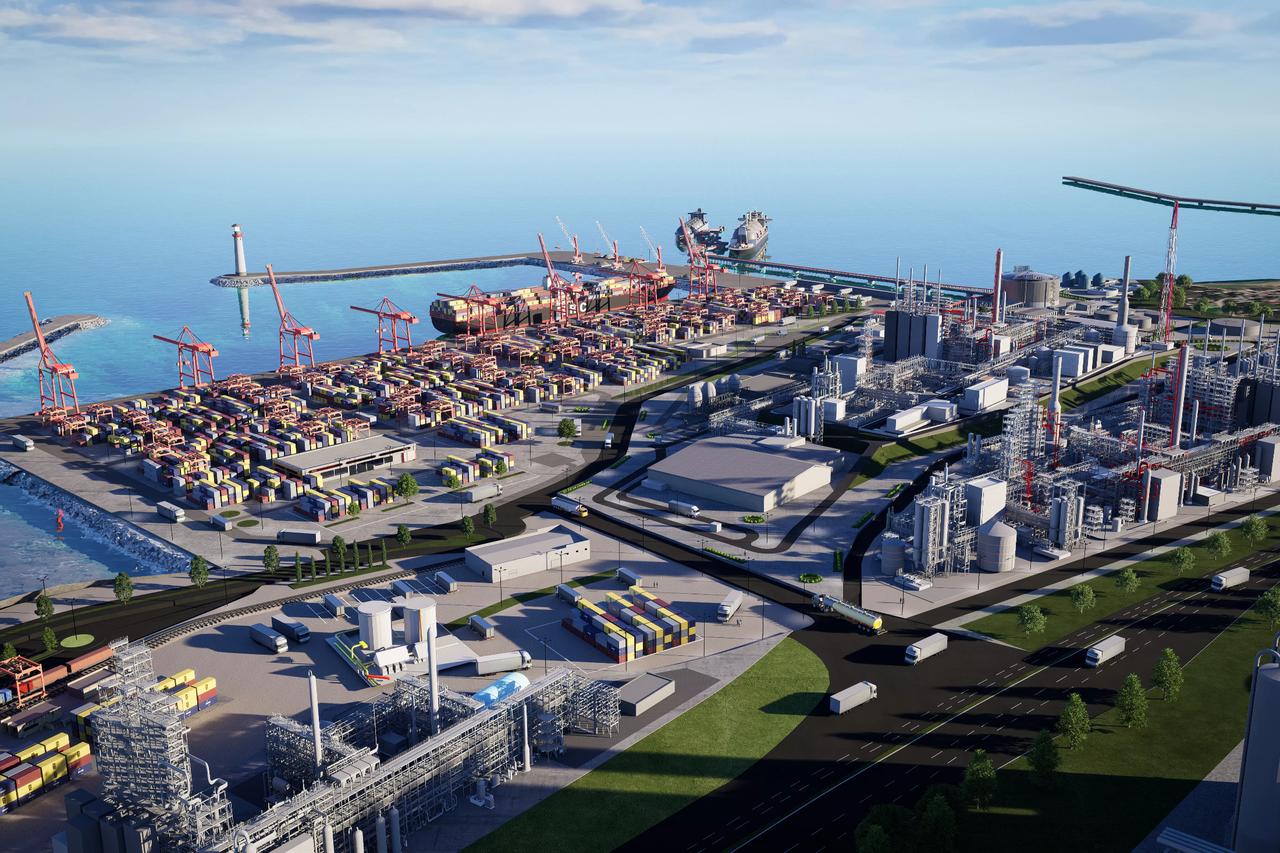
Turkish contractor Ronesans Holding’s $2 billion integrated investment—comprising a polypropylene (PP) production plant and a liquid cargo terminal in the southern province of Adana—is progressing rapidly, the company announced at a meeting in Istanbul hosted by Honorary Chairman Erman Ilicak.
The facility, considered one of the largest heavy-industry investments undertaken by the private sector in Türkiye, aims to strengthen the country’s petrochemical capacity while reducing its reliance on imported raw materials.
Once operational, the plant is projected to contribute around $300 million annually to Türkiye’s balance of payments.
Founded in Russia in 1993, Ronesans Holding has grown into a global company with operations in over 30 countries and a workforce of approximately 35,000 employees. Ilicak said that more than half of the group’s revenue is generated abroad and reinvested in Türkiye.
"We have successfully completed $50 billion worth of projects abroad and invested nearly $10 billion in Türkiye over the past 20 years," Ilicak said.
"These projects are financed with foreign capital and international funding that we bring into our country."
He added that the company continues to invest in renewable energy and commercial real estate using the same model applied in large-scale infrastructure and public-private partnership (PPP) projects.
The $2 billion project includes $1.3 billion in international financing and $700 million in equity investment. The PP facility, with an annual capacity of 472,500 tons, is being developed in partnership with Algeria’s state-owned energy company Sonatrach for the Propane Dehydrogenation and Polypropylene (PDH-PP) plant, and Norway’s Stolt-Nielsen for the liquid cargo terminal.
The development process spanned six years of preparation and financing. Construction began about a year ago following one of the largest private-sector financing deals in Türkiye, fully secured through international lenders. The investment is scheduled for completion by the end of 2027.

Türkiye imports around 8 million tons of plastic raw materials annually, making it the world’s second-largest importer after China. Polypropylene and polyethylene are among the products that contribute most to the country’s foreign trade deficit, with only 4% of domestic demand currently met through local production.
Ilicak said this dependency increases inventory costs and exposes industrial producers to supply and payment risks, reducing their export competitiveness.
"This investment will reduce import dependency and accelerate the development of our manufacturing sector," he said.
The plant’s location offers strategic advantages, including access to the sea, proximity to major industrial hubs such as Gaziantep, Adana, and Kayseri, and a long-term propane supply agreement with Sonatrach.
The terminal partnership with Stolt-Nielsen is progressing in parallel with the facility’s construction.
According to Ilicak, industrial investments exceeding $500 million in value have reached about $20 billion in Türkiye over the past 15 years. He said Ronesans aims to increase its total domestic investments to $14 billion within the next three years.
The Ceyhan site will be part of the Eastern Mediterranean Petrochemical Cluster and Port (DAPEK), designed to become one of Türkiye’s largest industrial zones. Ronesans is leading the development of key infrastructure, including electricity, natural gas, water, and railway connections.
"We are working to create an integrated industrial and port structure inspired by global models such as the Port of Rotterdam and Jurong Island in Singapore," Ilicak said. "We have also started feasibility studies for an additional $1 to $1.5 billion investment in the industrial zone."
The company envisions DAPEK evolving into a fully equipped, investor-ready industrial area valued between $15 billion and $20 billion, offering logistics advantages, advanced technology infrastructure, and investment incentives.
"We want this region to become Türkiye’s production and employment hub in petrochemicals," Ilicak concluded.
Ronesans Holding is also among Türkiye’s leading construction and engineering firms, ranking within the world’s top 50 contractors on the Engineering News-Record (ENR) 2025 list as the country’s second-highest-placed conglomerate.